Top 10 Ways to Clean Air in Your Home for Healthier Living
Looking for ways to achieve clean air in your home? Clean air is essential for health especially for older adults. This guide will show you practical methods to improve your indoor air quality and effectively “cleans air in home.”
Top Tips to Clean Air in Your Home
- Using essential oils and nebulizing diffusers can significantly improve indoor air quality due to their potent antibacterial, antifungal, and antiviral properties.
- Incorporating houseplants such as Snake Plant, Peace Lily, and Spider Plant can effectively filter out common volatile organic compounds (VOCs) from the air.
- Regular maintenance of HVAC systems and air filters is crucial for sustaining clean air, preventing system overwork, and reducing energy consumption.
Essential Oils and Nebulizing Diffusers
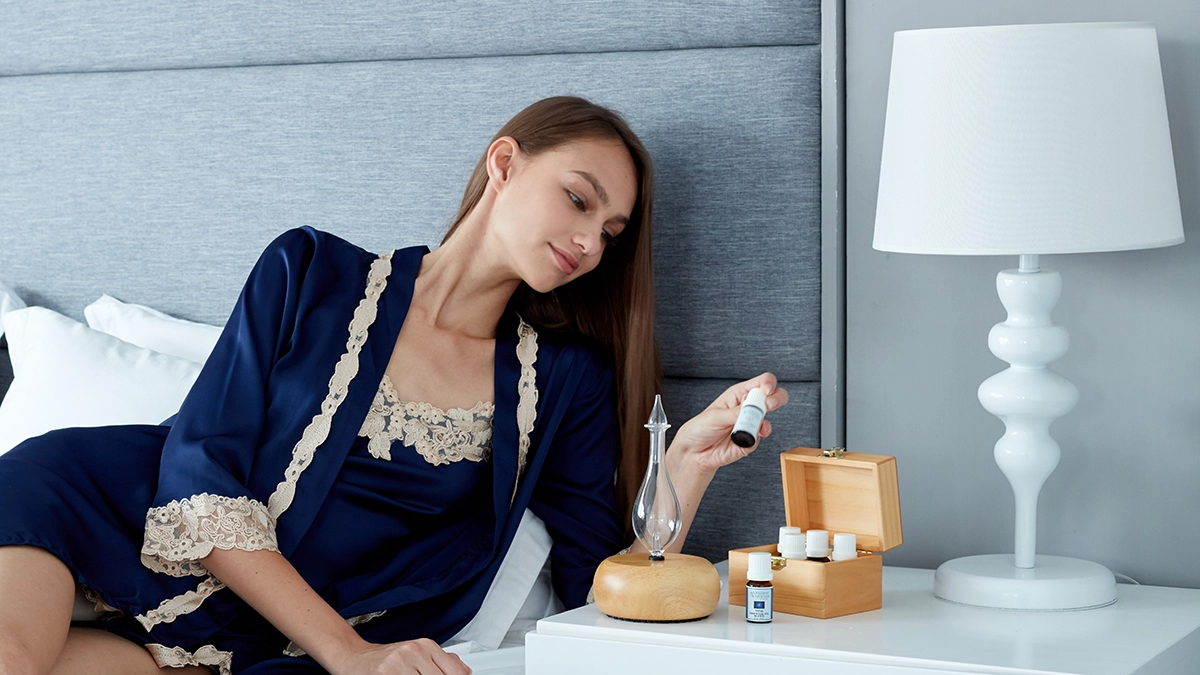
Naturally derived from various plant parts like leaves, fruits, flowers, bark, and roots, essential oils serve as nature’s air purifiers. Their potent antibacterial, antifungal, and antiviral properties make them a fantastic tool for cleaning the air in your home.
Some essential oils that are effective against germs include:
- Tea tree oil: known for its efficacy against pathogens like E. coli and S. aureus
- Lemongrass oil: effective against Bacillus species
- Eucalyptus oil: shows antimicrobial properties against common pathogens
These oils can be powerful allies in your fight against germs.
Maximizing the benefits of these essential oils can be achieved by using a nebulizing diffuser. Unlike other diffusers, nebulizers break down the oils into tiny particles without using heat or water, releasing a pure and potent mist into the air.
This not only improves indoor air quality but also fills your home with a refreshing natural scent, unlike synthetic air fresheners that can contribute to indoor pollution.
Benefits of Essential Oils for Air Quality
There is well-documented evidence of the antimicrobial properties of essential oils. They possess significant:
- antiseptic
- antibacterial
- antiviral
- antifungal activities
which make them highly effective in improving air quality. The secret lies in their ability to disrupt the membranes of pathogens, causing critical molecules and ions to leak out, thereby neutralizing the threat.
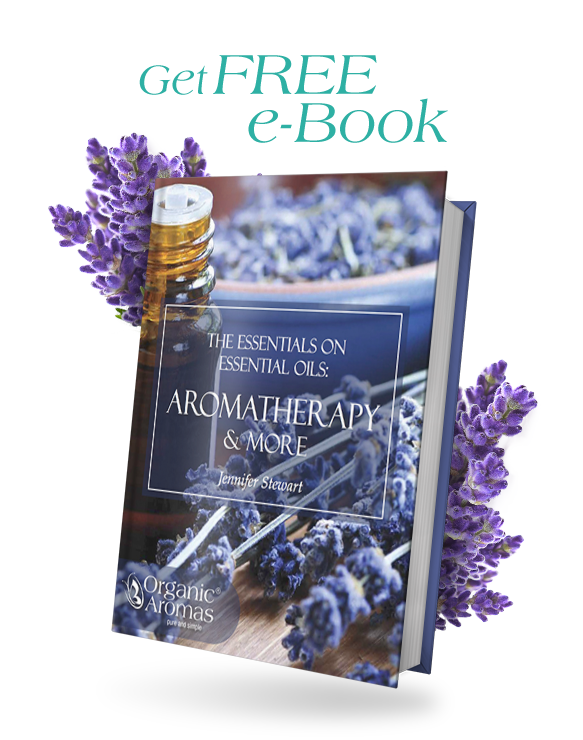
Sign Up to Get Your FREE
e-Book Here…
Essential oils are particularly useful against multidrug-resistant bacteria, enhancing the effectiveness of antibiotics and making them a valuable addition to your home health practices. Some benefits of essential oils include:
- Boosting the immune system
- Reducing inflammation
- Relieving stress and anxiety
- Improving sleep quality
- Alleviating headaches and migraines
Nano-encapsulation of essential oils can further improve their stability and effectiveness, ensuring they remain potent over time.
A significant enhancement in the quality in your home, particularly in terms of air quality, can be achieved by incorporating essential oils into your daily routine, thus providing a natural and effective way to combat indoor air pollution.
Which Essential Oils are Best for Air Quality
Using essential oils to improve air quality can be a great way to enhance your living or workspace with natural fragrances while potentially benefiting from their antimicrobial properties. Here are some of the best essential oils for purifying the air:
- Eucalyptus: Known for its refreshing and clean aroma, eucalyptus oil has antimicrobial properties that can help to cleanse the air of pathogens and allergens.
- Tea Tree: This oil is renowned for its strong antiseptic properties and ability to fight bacteria, viruses, and fungi, making it excellent for improving indoor air quality.
- Lavender: Besides its calming and relaxing effects, lavender oil can also help purify the air and reduce odors.
- Lemongrass: With its strong, citrusy aroma, lemongrass is effective at neutralizing odors and can help deter insects as well.
- Peppermint: Peppermint oil is not only refreshing but can also improve air quality by clearing congestion and deterring pests.
- Rosemary: This oil has a stimulating aroma and antimicrobial properties, making it useful for air purification.
- Thyme: Known for its potent antibacterial and antiviral properties, thyme oil can help reduce the presence of airborne pathogens.
To use these oils for air purification, you can add a few drops to a diffuser or create a spray by diluting them with water. This method can help to distribute the beneficial properties of the oils throughout your space.
Houseplants for Cleaner Air
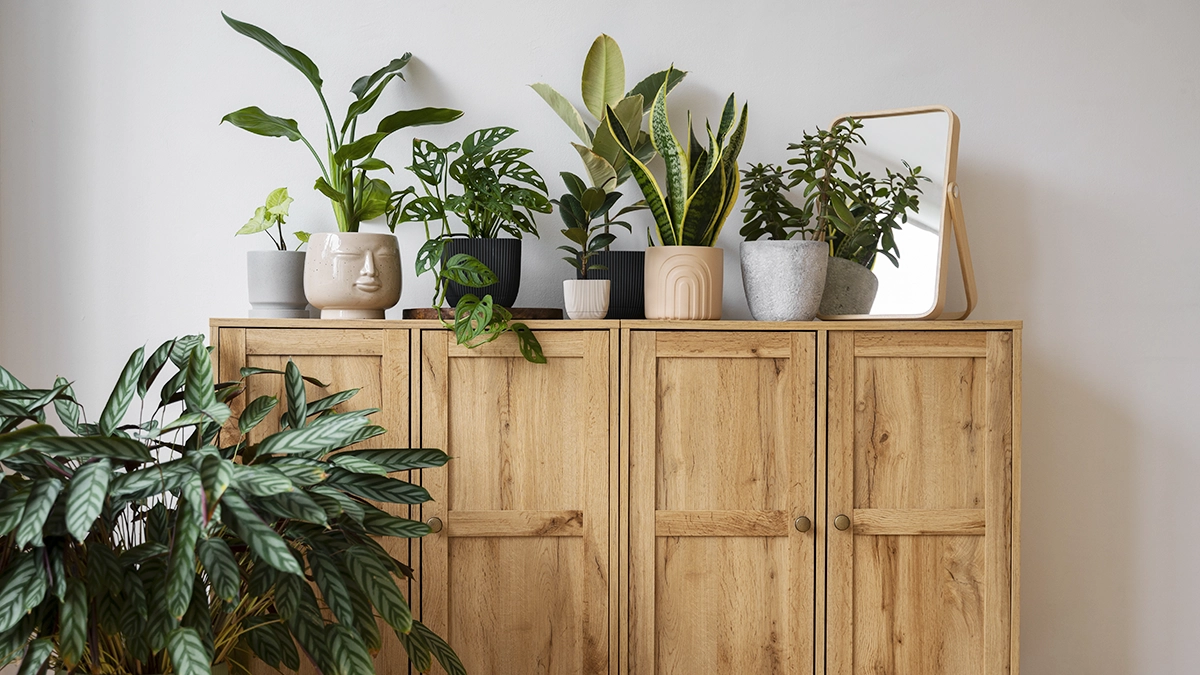
Far from being just decorative, houseplants also serve as natural air purifiers. Through a process known as phytoremediation, potted plants can filter out common volatile organic compounds (VOCs) from the air. This makes them an excellent addition to any home looking to improve indoor air quality. Some houseplants that are particularly effective at purifying the air include:
- Snake Plant
- Peace Lily
- Spider Plant
- Aloe Vera
- English Ivy
Adding these plants to your home can help remove toxins and improve the overall air quality.
Some plants that are great at purifying the air in your home include:
- Spider plants, which are effective at reducing benzene, formaldehyde, carbon monoxide, and nitrogen dioxide levels
- Chrysanthemums and gerbera daisies, which are particularly effective at removing benzene
- Golden pothos and philodendrons, which excel at filtering formaldehyde
NASA recommends having 15 to 18 houseplants in 6- to 8-inch diameter containers scattered throughout an 1,800-square-foot house to significantly improve air quality. So, why not turn your home into a green oasis and enjoy the dual benefits of aesthetic appeal and cleaner air?
Opening Windows for Fresh Air
Opening windows and doors is one of the simplest yet most effective methods of improving indoor air quality. This increases outdoor air ventilation, allowing fresh air to circulate and replace the stagnant air inside.
Ventilation helps remove or dilute indoor airborne pollutants, significantly reducing the level of contaminants. This is particularly important during activities that generate pollutants, such as cooking or cleaning.
Natural ventilation also helps moderate indoor temperatures and humidity levels, creating a more comfortable and healthier living environment. So, make it a habit to open your windows regularly, even for just a few minutes each day, to let in that much-needed fresh air.

Using Air Purifiers
Harmful particles, including particulate matter, in your home can be effectively reduced by air purifiers, especially those equipped with HEPA filters. These filters work by forcing air through a fine mesh that traps small particles like:
- pollen
- pet dander
- dust mites
- tobacco smoke
This process significantly improves indoor air quality and can alleviate allergy and asthma symptoms.
Using a HEPA filter can also help remove flu virus particles from the air, providing an added layer of protection during flu season. Portable HEPA air cleaners have been found to result in slight enhancements in cardiovascular and respiratory health, including mitigating symptoms associated with respiratory diseases, according to studies. These improvements are considered small but still significant.
When selecting an air purifier, consider the following:
- The clean air delivery rate (CADR) to ensure it matches the size of the room you intend to use it in
- Placing the purifier in the room where you spend the most time, often the bedroom, to maximize its benefits
- Regular maintenance of the filter to ensure its effectiveness and longevity
Non-Toxic Cleaning Products
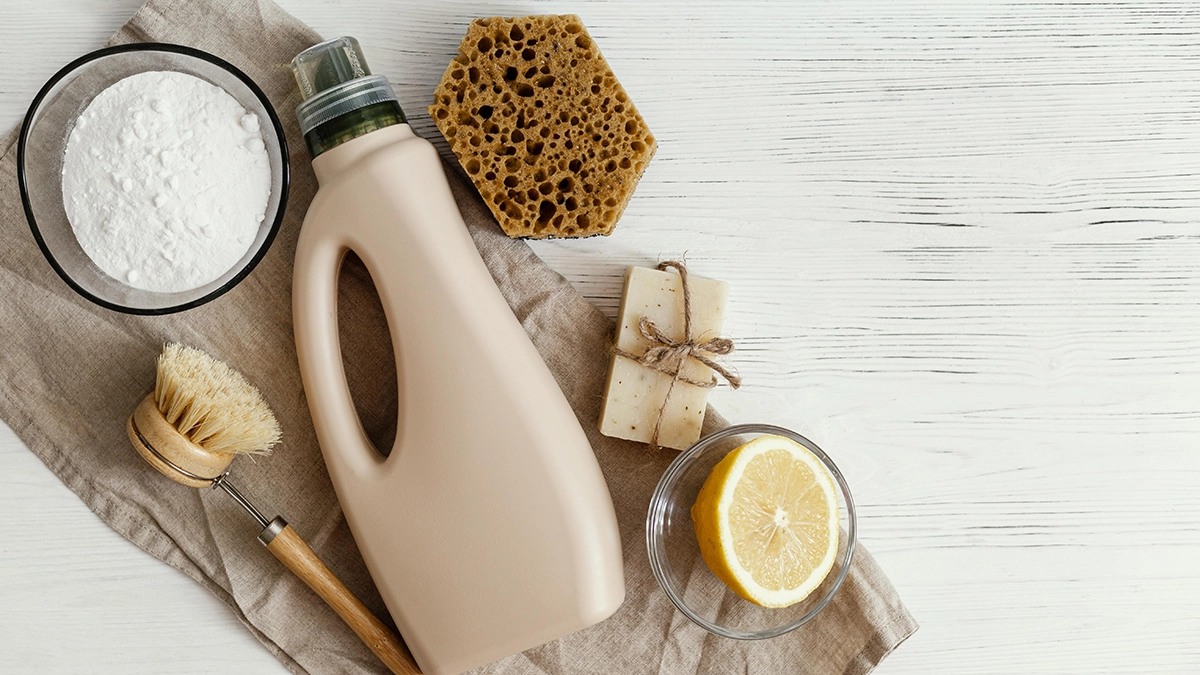
Another excellent method of improving indoor air quality is choosing non-toxic cleaning products. Traditional cleaning products can release harmful chemicals into the air, exacerbating indoor air pollution and potentially triggering asthma attacks. By reducing indoor air pollution, we can also minimize the impact of outdoor air pollution on our overall air quality.
Non-toxic or green cleaning products offer several benefits:
- Minimize the presence of airborne dust and chemical gases, promoting a healthier environment
- Safer for your health
- Better for the environment, often supporting recycling efforts and reducing the overall chemical footprint. In fact, using such products aligns with the goals of the Environmental Protection Agency.
Brands like Branch Basics, Meliora, and Seventh Generation offer effective non-toxic cleaning solutions that can keep your home clean without compromising air quality.
Maintaining HVAC Systems and Air Filters
For improving indoor air quality, regular maintenance of your HVAC systems and air filters is imperative. Neglecting this maintenance can lead to reduced energy efficiency, higher utility bills, and potential damage to the system due to accumulated debris.
Clean air is essential, and air filters play a crucial role in maintaining it. An air filter prevents blockages that can cause the HVAC system to overwork, leading to increased energy consumption and wear. Guidelines recommend replacing air filters every 90 days in standard settings, with more frequent replacements in homes with pets or allergy sufferers.
Using the highest-rated filter your system can accommodate and ensuring it fits snugly can capture more particles and enhance air quality. Regular maintenance not only improves air quality but also extends the life of your HVAC system.
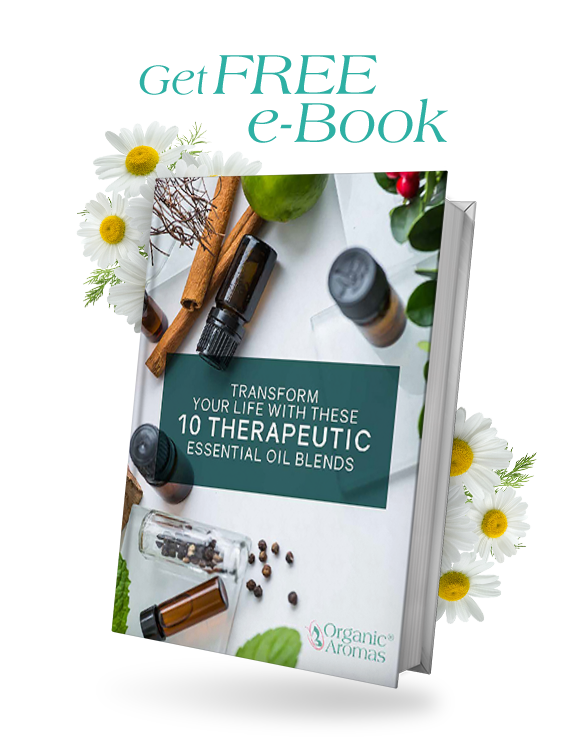
Sign Up to Get Your FREE Essential Oils e-Book Here
Removing Mold and Mildew
Common issues that can severely impact indoor air quality include mold and mildew. Using natural remedies like vinegar and baking soda is a safe and effective way to eliminate these harmful growths without harsh chemicals.
White distilled vinegar, often combined with lemon juice, acts as a powerful antibacterial agent to clean small mold patches. For tougher spots, mixing baking soda with vinegar to create a paste can help remove mold effectively.
To prevent mold recurrence, regularly wipe down surfaces with a damp microfiber cloth. Keeping your home dry and well-ventilated can also help prevent mold spores from taking hold again.
Reducing Pet Dander

A common allergen that can affect indoor air quality is pet dander, which consists of shed skin cells. Regularly bathing and brushing your pets can significantly reduce the amount of dander they shed.
To manage pet allergens, you can:
- Wash and change an animal’s favorite furniture and toys frequently
- Keep pets out of the bedroom
- Use a vacuum cleaner with a HEPA filter to capture dander and prevent it from re-entering the air.
Implementing these practices can help maintain cleaner air and reduce allergic reactions, making your home a more comfortable place for everyone.
Cleaning Exhaust fans and Air Ducts
Ensuring that exhaust fans and air ducts are clean is crucial for maintaining healthy indoor air quality. Over time, dust, air pollutants, fine particles, and pollen can build up within these systems, significantly diminishing their efficiency and polluting your home’s air. This buildup not only circulates undesirable particles but can also create a favorable environment for the growth of molds and bacteria.
Regularly cleaning exhaust fans helps in removing trapped pollutants that can cause the air to stagnate, leading to health issues such as allergies or respiratory problems. Moreover, maintaining these fans promotes better ventilation, helping to expel stale air and draw in fresh air from outside, thereby naturally reducing the levels of indoor pollutants.
The air conditioning system is another important appliance to avoid poor quality in the air you breath. Regularly cleaning the air filter is essential to prevent a mold problem that could potentially be hazardous to your health. Mold spores thrive in moist, unclean filters, and a contaminated air conditioner can spread mold throughout the house, posing serious health risks and compromising the air quality. By keeping these filters clean, you not only prevent mold growth but also ensure that the air conditioning unit functions optimally, keeping the air fresh and clean.
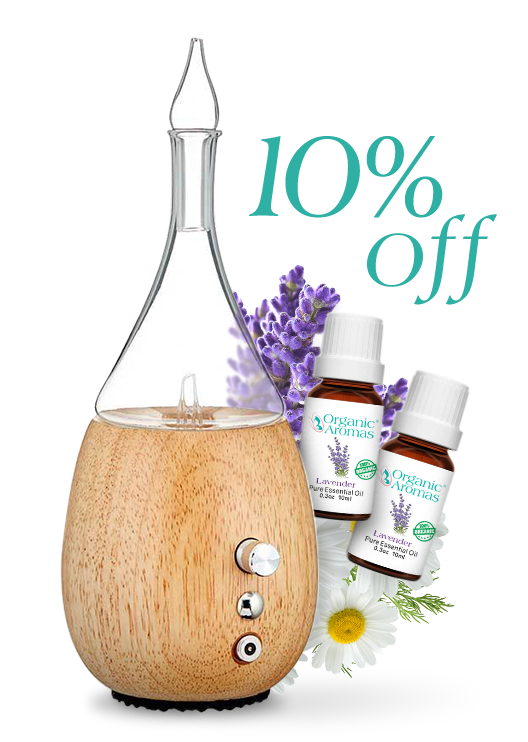
Join Now and Get a Coupon for 10% Off!
Avoiding Scented Products
Despite their pleasant smell, scented products like candles and air fresheners can contribute to poor air quality by emitting harmful volatile organic compounds (VOCs), such as formaldehyde and benzene. These VOCs can lead to headaches and irritations, and even pose long-term health risks like endocrine disruption and neurotoxicity.
To improve indoor air quality, it’s best to avoid these products whenever possible. Instead, opt for natural alternatives or ensure proper ventilation when using any scented products. An air cleaner with an activated carbon filter can also help reduce VOCs in your home.
Summary
In summary, improving indoor air quality is crucial for a healthier living environment. By incorporating essential oils, houseplants, air purifiers, and non-toxic cleaning products, you can significantly reduce indoor pollutants. Regularly opening windows, maintaining HVAC systems, and addressing mold and pet dust further contribute to cleaner air.
Remember, each step you take towards improving indoor air not only benefits your health but also enhances your overall well-being. Implementing these tips will help you create a sanctuary of clean air in your home.
Start today and breathe easier, knowing you’ve made a positive change for your health and your home.
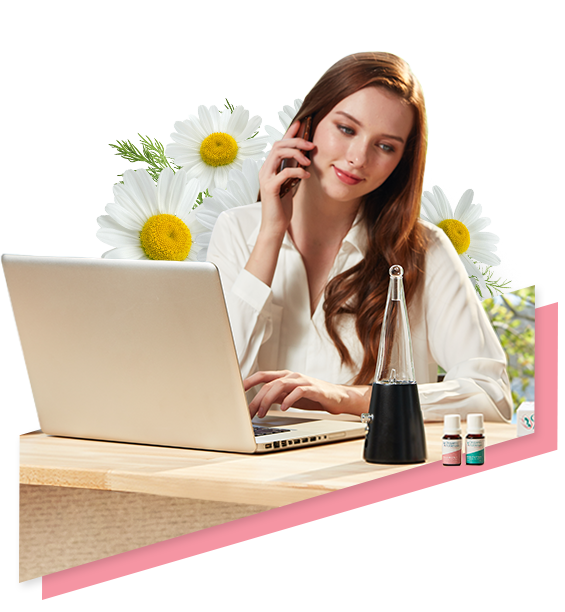
Join Our Exclusive Member Club to get Big Discounts!
Frequently Asked Questions
How do essential oils improve indoor air quality?
Essential oils can improve indoor air quality by killing germs, bacteria, and mold, thus enhancing your environment.
Which houseplants are best for filtering air pollutants?
Consider adding spider plants, chrysanthemums, and golden pothos to your home, as they are effective at filtering out benzene and formaldehyde, among other pollutants.
How often should I replace air filters in my HVAC system?
You should replace air filters every 90 days in standard settings, or every 30 to 60 days in homes with pets or allergy sufferers for optimal performance of your HVAC system.
What are the benefits of using non-toxic cleaning products?
Using non-toxic cleaning products can reduce exposure to harmful chemicals, minimize airborne dust, and promote a healthier environment. This can lead to a safer and cleaner living space.
Why should I avoid using scented products?
You should avoid using scented products because they emit harmful VOCs that can lead to headaches, irritation, and long-term health issues like endocrine disruption and neurotoxicity. These can have a serious impact on your health and well-being.








Very interesting